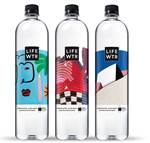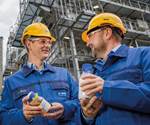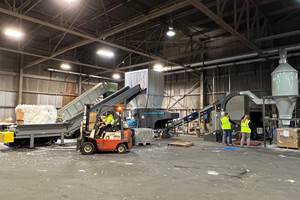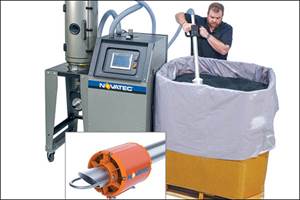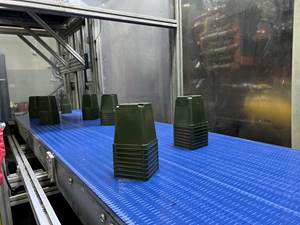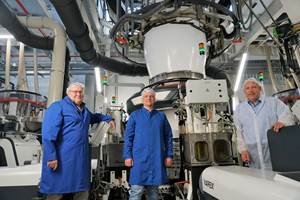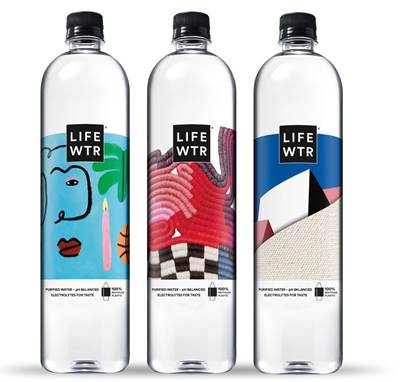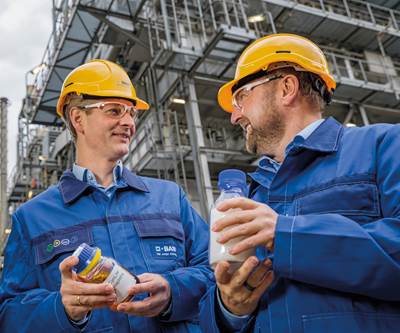
The Case Western Reserve-led team is working to develop and test a technique to advance recycling technology.
When there’s talk of mechanical and chemical recycling, it’s usually an either-or situation. But researchers at Case Western Reserve University are looking at combining aspects of both technologies into one hybrid chemical-mechanical solution.
With help from government and industrial partners, the CWRU-led team are working to develop and test a technique that blends the high-efficacy chemical method of plastic recycling with the typically high-output but low-efficacy mechanical recycling.
“Mechanical is great for the volume that you need, but there are limitations on the end-value of the recyclate,” says the project’s lead researcher, João Maia, a professor in Macromolecular Science and Engineering. “Chemical recycling helps to retain the value of the polymer, but the problem is with scale.”
The CWRU-led team will study how to separate various polymers in the melt state, so that each can then by upcycled by itself. One of the partners in this work, Braskem, was able to separate about 20% of the PS from the plastic in trial runs.
“But they did that without optimizing the process,” Maia says. “We believe we can do that even better and achieve 80% separation. That would really move things forward, and it could be scalable so it could be handled by individual communities with an investment as low as $3 million to $4 million.”
The team plans to develop a hybrid model, taking the low-cost investment of mechanical recycling, but breaking down the plastics through a new lower-temperature (about 350 C), lower-pressure method.
According to Maia, an important aspect is the use of a new twin-screw extrusion technology for continuous separation of materials in the melt and the modification of current recycling technologies—catalytic cracking for PE and glycolysis and hydrolysis for PET—to extrusion. Multi-scale computational modeling will be integrated with the chemical and processing studies to determine optimal catalytic and degradation routes, microstructure development and rheological behavior, and process kinetics and optimization.
Maia says their process takes mixed waste, whether post-industrial or post-consumer, after it’s been washed, and puts it into an extruder and separates the materials in the melt—such as polyolefins and polyesters—each of which gets upcycled separately.
“The advantages are that it takes the burden of sorting and separation away from the consumer,” Maia says. “And hopefully we’ll be able to get the type of scale from mechanical recycling and the type of quality of upcycling from chemical recycling.”
This effort is supported by a $2.5 million grant within the U.S. Department of Energy’s recently announced “Plastics Innovation Challenge.”
Besides CWRU researchers and Braskem, partners in the project include Procter & Gamble, Resource Material and Recycling of Middlefield, Ohio, the Lawrence Livermore National Laboratory, and Sandia National Laboratory.
Grant Goodrich, executive director of the Great Lakes Energy Institute at CWRU, which helped facilitate the research, says the project could create novel solutions for two issues: addressing the difficult process of removing contaminants (scraps of food, labels, etc.) from sorted plastic waste, and recycling those plastics that have so far been difficult to recycle, such as laminated and multi-layered films and bottles.
Maia said the initial research will be done at CWRU and then tested at a larger scale off-site. At the project’s end, PET and nylon separation and upcycling will be achieved with industrial and domestic waste at pre-production scale and polyolefin upcycling will be achieved in industrial setting at pilot scale with industrial and domestic waste.
“If this works, I think this can become an game changer,” Maia says. “It’s a better way of recycling and the companies we are talking to are super excited to jump on board. And we’re open to other companies joining our consortium.”
Related Content
Purpose-Built System Enhances Capacity and Flexibility for Recycler
A Boston recycler invested in a turnkey shredding, granulation and elutriation system to expand its plastics reclaim business.
Read MoreNew Technology Enables ‘Smart Drying’ Based on Resin Moisture
The ‘DryerGenie’ marries drying technology and input moisture measurement with a goal to putting an end to drying based on time.
Read MoreProcessor Turns to AI to Help Keep Machines Humming
At captive processor McConkey, a new generation of artificial intelligence models, highlighted by ChatGPT, is helping it wade through the shortage of skilled labor and keep its production lines churning out good parts.
Read MoreFiltration System Helps Film Processor Manage Recycled Material Mandates
Global film processor RKW teams with Nordson to enable it to process blown film with high recycled content.
Read MoreRead Next
Leading the Charge: Brand Owners Moving to Boost Recycled Content in Packages, Products
Leading brand owners and a big-box retailer discuss their recycling goals, which will impact processors and the entire supply chain.
Read MoreRecycling: Expanding 'Circularity' through Advanced Recycling Technologies
Recycling and achieving circularity for materials is at the core of the plastics industry’s evolving sustainable business model. Advanced technologies will play a big role.
Read MoreLead the Conversation, Change the Conversation
Coverage of single-use plastics can be both misleading and demoralizing. Here are 10 tips for changing the perception of the plastics industry at your company and in your community.
Read More


